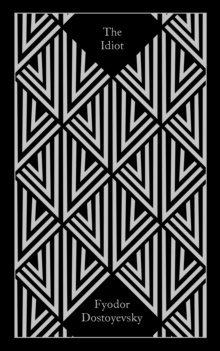The Idiot

Editorial Penguin Books Ltd
Fecha de edición septiembre 2025 · Edición nº 1
Idioma inglés
EAN 9780241739822
784 páginas
Libro
encuadernado en tapa dura
Dimensiones 132 mm x 204 mm
Resumen del libro
Dostoyevsky's great novel of suffering and sickness, innocence and greed, now in Penguin Clothbound ClassicsReturning to St Petersburg from a Swiss sanatorium, the gentle and naïve epileptic Prince Myshkin - the titular 'idiot' - pays a visit to his distant relative General Yepanchin and proceeds to charm the General, his wife, and his three daughters. But his life is thrown into turmoil when he chances on a photograph of the beautiful Nastasya Filippovna. Utterly infatuated with her, he soon finds himself caught up in a love triangle and drawn into a web of blackmail, betrayal, and finally, murder.
Inspired by an image of Christ's suffering, Dostoyevsky sought to portray in Prince Myshkin the purity of a 'truly beautiful soul' and explore the perils that innocence and goodness face in a corrupt world. David McDuff's translation brilliantly captures the novel's idiosyncratic and dream-like language and the nervous, elliptic flow of the narrative. This edition also contains an introduction by William Mills Todd III, which is a fascinating examination of the pressures on Dostoyevsky as he wrote the story of his Christ-like hero.
If you enjoyed The Idiot, you might like Anton Chekhov's Ward No. 6 and Other Stories, also available in Penguin Classics. 'McDuff's language is rich and alive'The New York Times Book Review' The Idiot's ...
narrative is so compelling'Rowan Williams








